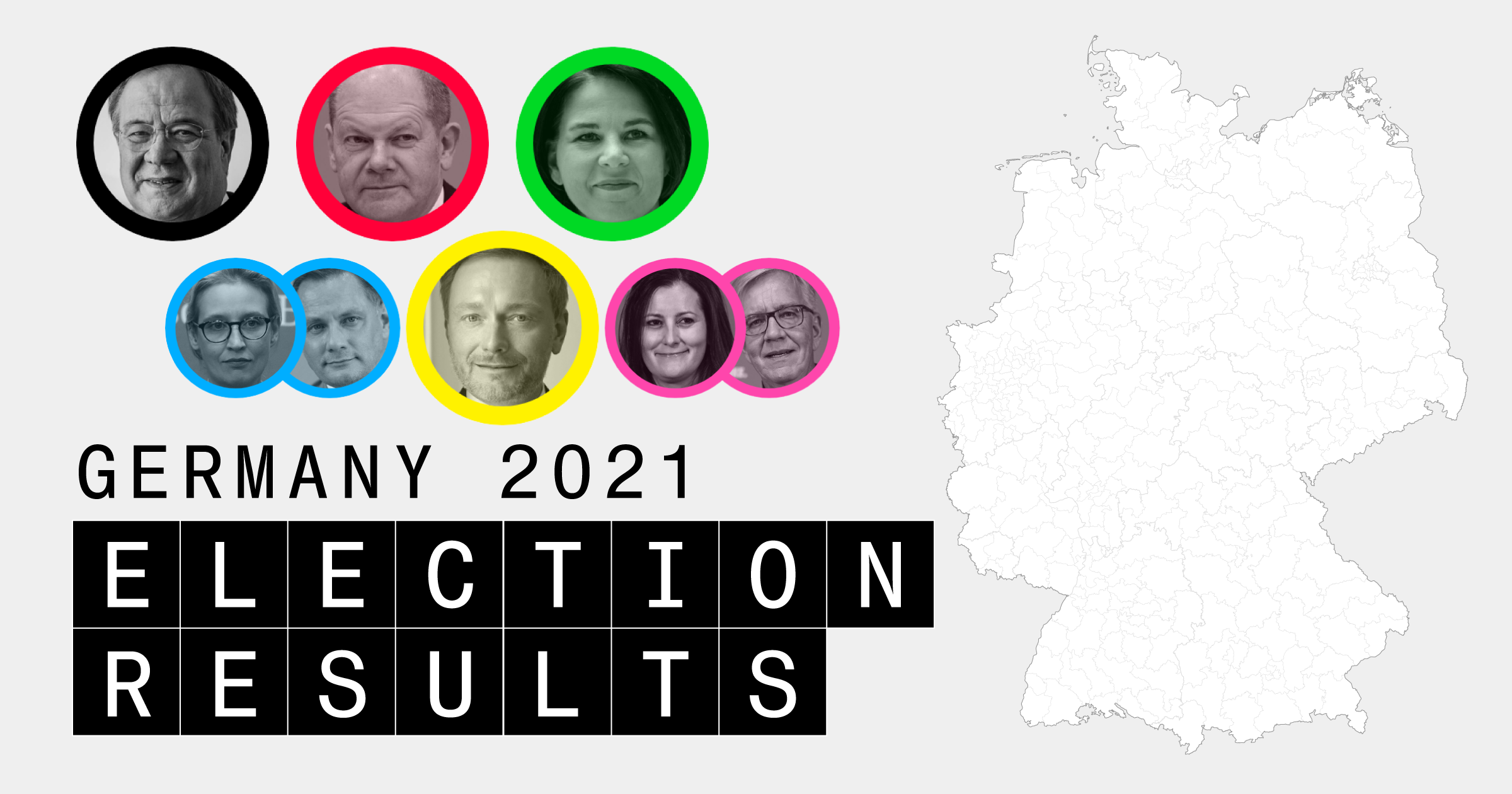German Election: The Final Push To Make A Difference

Table of Contents
Key Political Parties and their Platforms
The German political landscape is diverse, with several major parties vying for power in the Bundestag election. Understanding their platforms is crucial for making an informed choice. Key players include the SPD, CDU/CSU, Greens, FDP, AfD, and the Left Party. Their stances on key issues often differ significantly.
-
SPD (Sozialdemokratische Partei Deutschlands): Generally positioned on the center-left, the SPD typically advocates for social justice, stronger workers' rights, and increased social spending. Their economic policies often focus on sustainable growth and investment in infrastructure. On climate change, they support a rapid transition to renewable energy. Their immigration policy generally favors integration and welcomes skilled migrants.
-
CDU/CSU (Christlich Demokratische Union Deutschlands / Christlich-Soziale Union in Bayern): This union of two sister parties occupies the center-right of the political spectrum. They typically prioritize fiscal responsibility, balanced budgets, and a strong private sector. Their climate change policies are generally more moderate than the Greens, emphasizing technological solutions and gradual transition. Their stances on immigration and integration tend to be more cautious than the SPD.
-
Bündnis 90/Die Grünen (Alliance 90/The Greens): A prominent party on the left, the Greens prioritize environmental protection, sustainability, and social justice. Their economic policies often focus on green jobs and sustainable investments. Climate change is central to their platform, advocating for aggressive emissions reduction targets and a rapid transition to renewable energy sources. They generally favor a welcoming immigration policy.
-
FDP (Freie Demokratische Partei): A liberal party, the FDP champions free markets, economic liberalization, and reduced government intervention. They typically advocate for lower taxes, deregulation, and fiscal conservatism. While acknowledging the need for climate action, their approach often prioritizes market-based solutions and technological innovation.
-
AfD (Alternative für Deutschland): A right-wing populist party, the AfD focuses on issues of immigration, national identity, and Euroscepticism. Their economic policies are often Eurosceptic and critical of European Union regulations. Their stance on climate change is often skeptical of aggressive emission reduction targets.
-
Die Linke (The Left Party): Positioned on the far-left, Die Linke advocates for significant social and economic reforms, including increased social welfare spending, wealth redistribution, and stronger workers' rights. They are generally critical of the capitalist system and advocate for stronger worker protections. Their environmental policies align closely with the Green Party’s, often with a strong emphasis on social justice aspects of climate change.
For detailed information on each party's platform, visit their official websites: [Link to SPD website], [Link to CDU website], [Link to CSU website], [Link to Greens website], [Link to FDP website], [Link to AfD website], [Link to Die Linke website].
Understanding the German Electoral System
Germany uses a mixed-member proportional representation (MMP) system for its Bundestag elections. This means voters cast two votes: one for a direct candidate in their constituency (first-past-the-post), and one for a party list. This system can lead to complexities.
-
Two Votes: The first vote elects a candidate from your local constituency. The second vote determines the overall party representation in the Bundestag, based on proportional representation.
-
Allocation of Seats: The number of seats each party receives is determined by the second vote, aiming for proportionality. However, the system accounts for "Überhangmandate" (overhang seats). These occur when a party wins more direct mandates (first vote) than its share of the second vote would suggest, leading to an uneven number of seats.
-
Coalition Building: Often, no single party wins an outright majority. This necessitates coalition building among different parties to form a governing government. The post-election negotiations can be lengthy and complex.
Understanding this system is vital to interpreting election results and understanding how the government will be formed.
Crucial Issues Shaping the Election
Several key issues will shape the outcome of the German election. These issues resonate deeply with voters and reflect the challenges facing Germany.
-
Climate Crisis: Germany’s commitment to the Paris Agreement and its transition to renewable energy are central. Parties differ in their approaches, with the Greens advocating for the most ambitious targets.
-
Economic Inequality: Rising income inequality is a concern. Parties offer different solutions, ranging from increased social welfare programs to tax cuts aimed at stimulating the economy.
-
Digitalization: Germany’s digital infrastructure and its competitiveness in the digital economy are major concerns. The parties have varying perspectives on the role of government in promoting digital transformation.
-
Healthcare Reform: The sustainability and affordability of the German healthcare system are constantly debated. Parties offer different proposals for reforms, affecting access, costs, and quality.
-
Refugee Policy: The integration of refugees and asylum seekers remains a contentious issue. Parties have diverse stances, ranging from welcoming policies to more restrictive approaches.
-
European Integration: Germany’s role in the European Union and its future direction are key themes. Parties have different perspectives on EU policy and reform.
-
Foreign Policy: Germany’s role in international affairs and its foreign policy priorities are debated, particularly in relation to Russia and other global powers.
The Importance of Voter Turnout
Voter turnout is essential for a healthy democracy. High participation ensures that the elected government truly represents the will of the people.
-
Civic Duty: Voting is a fundamental civic duty, allowing citizens to shape their country's future.
-
Influence and Impact: Every vote contributes to the overall result, influencing policy decisions and the composition of the government. Even a small difference in voter turnout can change the outcome of an election.
-
Consequences of Low Turnout: Low turnout can lead to a government that doesn't fully represent the population's preferences, potentially marginalizing certain groups.
Conclusion
The German election is a pivotal moment for the nation. Understanding the key parties, the electoral system, and the critical issues at stake empowers you to make an informed choice. Your participation is vital to shaping Germany's future. Make your voice heard! Participate in the German election and make a difference. Research the candidates and parties thoroughly and cast your vote. Your involvement in the German election is crucial for a strong and prosperous future for Germany. Don't miss your chance to make a difference!

Featured Posts
-
 Mission Impossible 7 Trailer Analysis What The Dead Reckoning Part Two Footage Gets Right
May 14, 2025
Mission Impossible 7 Trailer Analysis What The Dead Reckoning Part Two Footage Gets Right
May 14, 2025 -
 Manchester Uniteds Pursuit Of Championship Talent Transfer Fee And Competition
May 14, 2025
Manchester Uniteds Pursuit Of Championship Talent Transfer Fee And Competition
May 14, 2025 -
 Deca Rodzera Federera Slike I Detalji O Njihovom Zivotu
May 14, 2025
Deca Rodzera Federera Slike I Detalji O Njihovom Zivotu
May 14, 2025 -
 Alkaras Put Do Uspeha I Inspiracija Za Decu
May 14, 2025
Alkaras Put Do Uspeha I Inspiracija Za Decu
May 14, 2025 -
 Dodgers Ohtani 3 Run Homer Fuels Comeback Win Against Diamondbacks
May 14, 2025
Dodgers Ohtani 3 Run Homer Fuels Comeback Win Against Diamondbacks
May 14, 2025
